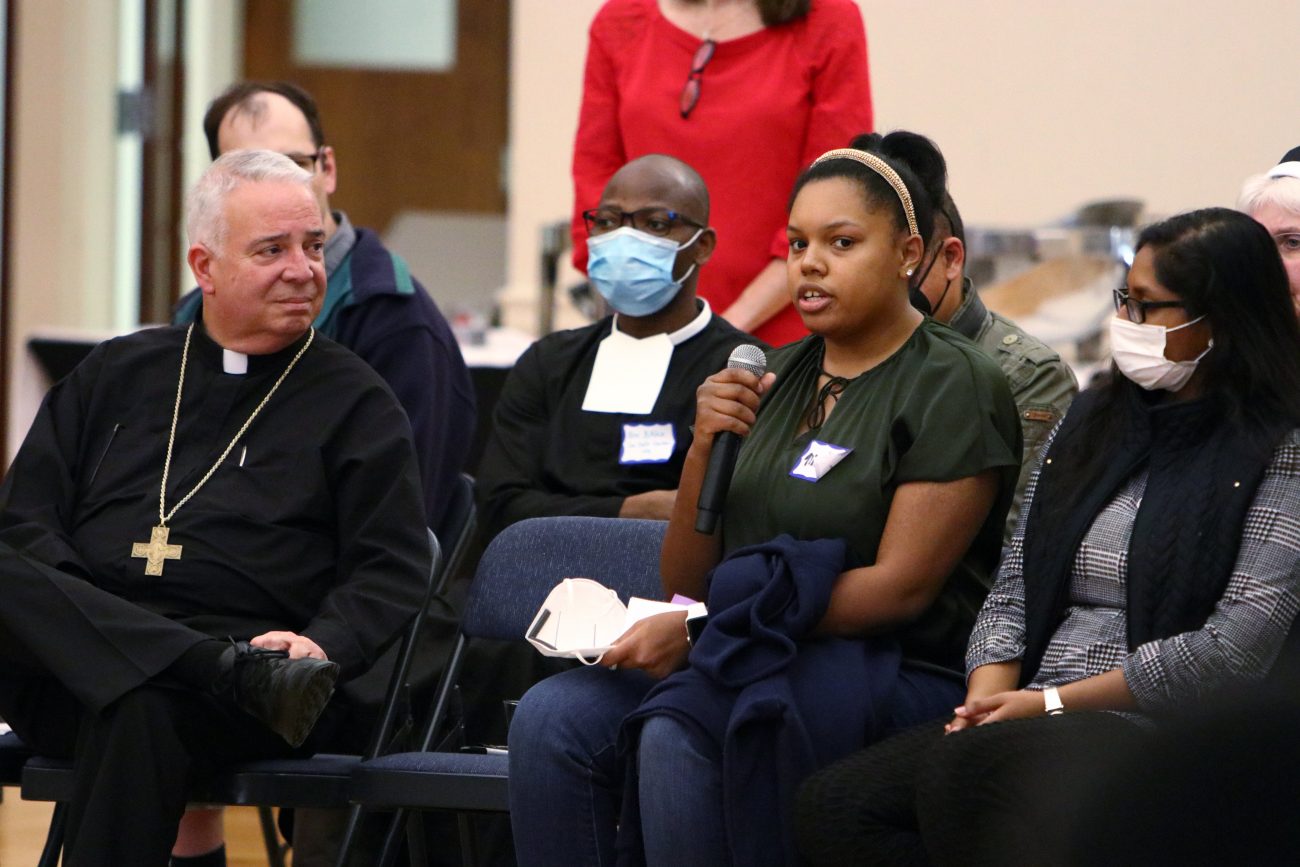Following the Second Vatican Council in the early 1960s, synods have periodically served as opportunities for Popes to invite Catholics around the world to share their insights and experiences on specific topics and as members of the body of Christ as expressed in the Universal Church. In 2017, Pope Francis initiated a Synod on Young People, which was the focus of the Synod of Bishops in 2018.
In 2021, Pope Francis commenced a Synod on Synodality. In response, Archbishop Nelson J. Pérez opened the Diocesan phase of the Synod on Synodality in the Archdiocese of Philadelphia in October of that year. The Catholic Church refers to synodality as “the involvement and participation of the whole people of God in the life and mission of the Church.”
An important step in the Synod on Synodality was recently completed when the U.S. Conference of Catholic Bishops released the official summary of the North American Final Document for the Continental Stage of the 2021-2024 Synod: For a Synodal Church: Communion, Participation, and Mission.
This document, which included input from six other Continental Assemblies, will form the basis for the Instrumentum Laboris which will be released by the General Secretariat of the Synod this month. An instrumentum laboris (Latin for ‘working instrument’) is an official Vatican document that is used at a General Assembly of the Synod of Bishops.
“The Pope uses the Synod as an opportunity every few years to reflect universally as a church on certain questions,” explained Msgr. Brian Hennessy, pastor of St. Alphonsus Parish in Maple Glen, who served as coordinator for the archdiocesan phase of the Synod. “It’s his chance as the universal pastor to hear the voice of the church, and in prayer, to reflect typically with bishops from around the world, but also with others who participate in various ways in that process – lay people, religious, and priests.”
Msgr. Hennessy added that the Pope wanted the Universal Church to participate in a Synod “specifically about the question of synodality itself.”
“It’s really unprecedented what the Pope is trying to accomplish,” he said. “Hearing the voice of the Church Universal is very personal. It’s sitting down with a few people in prayer, which is essential because this is a moment of discernment, and we place ourselves into the context of the Word of God. Then people just shared what their life of faith is like, where their joys and sorrows have been, and they were able to speak freely and honestly.”
As coordinator of the archdiocesan phase of the synod, Msgr. Hennessy said the opportunity to listen to Catholics talk about their faith was a positive experience for him.
“I was privileged to be a part of a lot of beautiful conversations where people spoke openly of their faith,” he added. “Many spoke very vulnerably of the challenges in their life and in living out their faith. For many people it was the first time they had those kinds of personal conversations of faith with other people.”
Bringing people together to engage in conversations about their faith fulfilled the Holy Father’s purpose for organizing the Synod on Synodality, according to Msgr. Hennessy.
He added that the archdiocesan phase of the Synod gave Catholics in the Archdiocese the chance “to encounter one another, to reflect on faith and to realize that everyone has both a voice to offer, but also ears to hear and to learn from each other.”
The next step in the Synod process is for meetings to be held in Rome this fall with the Holy Father and synod participants which will include lay people, clergy, religious and bishops. Msgr. Hennessy said these conversations will continue through next October and will culminate with Pope Francis writing a document in response to the Synod and offering his reflections and guidance to the Church.
Being a more synodal church will be an ongoing focus in the Archdiocese with an emphasis on helping Catholics become more confident in sharing their faith with others.
“Archbishop Pérez has his great initiative of missionary discipleship, which is absolutely synodal,” Msgr. Hennessy said. “It’s a sharing of faith and being able to just talk about faith and witnessing to it, and recognizing the great gift we have to share. The hope is that people will recognize their responsibility, not just to go to church and sit in the pews and receive what’s given, but to be active members of the Church who are bringing their faith to bear in their daily lives, and by their attractiveness, leading others to that experience of Christ and his Church.”
For more information about the Synod on Synodality, visit https://www.usccb.org/synod
PREVIOUS: Superintendent of Catholic High Schools, Schools of Special Education, Issues Statement On High School Teacher Contract Negotiations
NEXT: Archdiocese to Send Forth 115 Delegates to the National Black Catholic Congress



Share this story